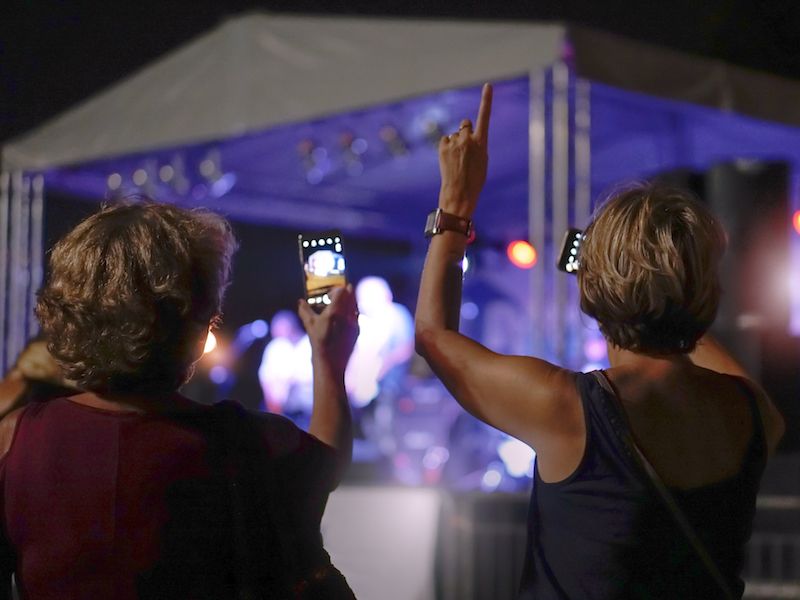
Summer has finally arrived, and you’re ready for all those things we’ve been looking forward to: swimming in the pool, going to the beach, and other activities that may injure your ears. That’s right, summer has many hidden potential risks to your hearing, either from loud noises or the external scenarios you might find yourself in. Any sounds above 80 decibels can cause harm to your ears, while enduring hearing loss can take hold in pools or other bodies of water. You need to take precautions and be conscious of your surroundings so that you can safeguard your hearing this summer. Here are six of the summer’s hidden hearing risks.
Wear Hearing Protection at Concerts
Whether you’re at an indoor venue or an outdoor concert venue you still need to use hearing protection during live music. Concerts can reach that are over 90 decibels, even at outdoor shows, which is inside of the danger zone of hearing loss. So whether you’re attending an outside or inside shows, it’s a smart plan to use earplugs. You can still hear the tunes with earplugs in it’s just dampened slightly. If you’re going to a show with young children, think about buying them a heavy duty pair of earmuffs because kids have more sensitive ears than adults.
Fireworks Can Damage Your Ears
Honestly, there are a lot of reasons to avoid fireworks in the summer. This is not about the specialized 4th of July fireworks show, we mean the backyard fireworks which every summer season cause hundreds of accidents. Home fireworks get to decibel levels of nearly 155 which can damage your ears as well as causing hand injuries, blindness and home fires. This year, on the 4th of July, enjoy the fireworks from a little further away and leave the fireworks to the pro’s.
Loss of Hearing Can be Caused by Lawnmowers
If you’re serious about your yard, most likely you’re out there at least once a week on your lawnmower, trimming your bushes and using your edger. But this muffled sensation in your ears is a sign that your ears have taken damage. That’s because the constant noise from your lawn tools impact your hearing over time. If you’ve ever observed landscapers, it is likely you have seen them wearing ear protection, you should take a cue from them and wear earmuffs or earplugs next time you attend to your lawn to make certain your hearing doesn’t get injured.
How to Safeguard Your Ears When You’re at Pools And Beaches
Huge numbers of people suffer from swimmer’s ear every summer, which happens when the ear canal traps water that is high in bacteria. The bacteria then infects the ear, producing painful earaches and swelling. These bacteria are usually found in lakes and rivers but could also live in pools and hot tubs if the water is not thoroughly treated. No irreversible injury should occur if you have your ears examined by a hearing expert. To be safe, when swimming in your pool, wear special swimmers earplugs and keep the chemical balance precise to decrease the likelihood of getting swimmers ear.
Boats and Other Water Sports
Summertime is a breath of freedom for the people who love to be in a boat on the water, smelling the salt air of the ocean or the fresh breeze of the lake. But, jet ski and boat engines are usually loud,they can get up to over 100 decibels. Continual exposure to that kind of noise for a period of about 15 minutes can result in irreversible hearing impairment. In this situation also, using a pair of throw away foam earplugs is a smart strategy.
Your Hearing Can be Injured by Car Races
It doesn’t make a difference what kind of auto racing you enjoy, midget, Formula 1, drag racing, motorcycle Formula 1. Every one of them can present a huge issue for your hearing if you attend many races during the summer season. 120 dB is inside of the danger zone for hearing damage and a number of races go way above this. Earplugs are your best bet at these races, although your kids should definitely wear the earmuffs which were mentioned earlier. If not, you may not be able to enjoy the sound of those engines as you get older.